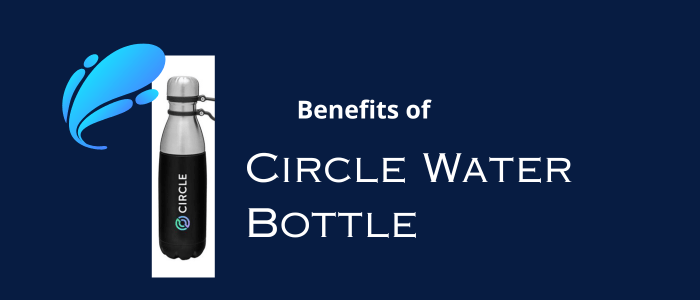Table of Contents
ToggleYuva Sahakar Scheme benefits for youth entrepreneurs
The “Yuva Sahakar – Cooperative Enterprise Support and Innovation Scheme” is being implemented by the National Cooperative Development Corporation (NCDC), a statutory body under the Ministry of Cooperation. This scheme aims to support newly formed cooperative societies with innovative ideas across the country.
It specifically targets young entrepreneur cooperative societies that have been operational for at least three months. Under this scheme, NCDC offers long-term loans (up to five years) with a 2% interest subvention on the applicable rate for project activities. Additionally, the loan component can be combined with subsidies from other Government of India schemes, where applicable. NCDC’s funding is project-based. So far, no proposals have been received from eligible cooperatives in Himachal Pradesh and Andhra Pradesh under the Yuva Sahakar Scheme.
The details of the funds sanctioned and disbursed in the current year are as follows:
Sanctioned amount = 230.61 Lakh
Disbursed amount =89.88 Lakh
As on 30/11/2024, NCDC has sanctioned financial assistance of Rs.4734.97 lakh to cooperatives with 18915 beneficiary members and released assistance of Rs.294.44 lakh. No proposal is received from any eligible cooperative of Himachal Pradesh.
The steps by the Ministry for the Development of the Cooperatives across the country are annexed.
ANNEXURE
Progress on Major Initiatives by the Ministry of Cooperation
Since its inception on July 6, 2021, the Ministry of Cooperation has launched several initiatives to realize the vision of “Sahakar-se-Samriddhi” and to strengthen the cooperative movement from primary to apex level cooperatives across the country. Here are some key initiatives and their progress:
A. Making Primary Cooperatives Economically Vibrant and Transparent
- Model Bye-Laws for PACS: The government, in consultation with stakeholders including States/UTs, National Level Federations, State Cooperative Banks (StCBs), and District Central Cooperative Banks (DCCBs), has prepared and circulated Model Bye-Laws for Primary Agricultural Credit Societies (PACS). These bye-laws enable PACS to undertake over 25 business activities, improving governance, transparency, and accountability. They also make PACS membership more inclusive, giving adequate representation to women and Scheduled Castes/Scheduled Tribes. So far, 32 States/UTs have adopted these Model Bye-Laws or have aligned their existing bye-laws accordingly.
- Strengthening PACS through Computerization: To enhance PACS, a project for their computerization with a financial outlay of ₹2,516 Crore has been approved. This project aims to bring all functional PACS onto a common ERP-based national software, linking them with NABARD through StCBs and DCCBs. A total of 67,930 PACS from 30 States/UTs have been sanctioned under this project, with 40,727 PACS already onboarded on ERP software and hardware procured by 29 States/UTs.
- Establishing New Multipurpose PACS/Dairy/Fishery Cooperatives: The government has approved a plan to establish new multipurpose PACS, dairy, and fishery cooperatives to cover all panchayats and villages over the next five years. Supported by NABARD, NDDB, NFDB, and State/UT Governments, this initiative has led to the registration of 8,823 new PACS, Dairy, and Fishery Cooperative Societies since February 15, 2023.
- World’s Largest Decentralized Grain Storage Plan: The government has approved a plan to create warehouses, custom hiring centers, primary processing units, and other agricultural infrastructure for grain storage at the PACS level. This initiative aims to reduce food grain wastage and transportation costs, enabling farmers to get better prices for their produce. Under the pilot project, godowns have been constructed in 11 PACS across 11 States.
- PACS as Common Service Centers (CSCs): An MoU has been signed to provide over 300 e-services through PACS, including banking, insurance, Aadhaar enrollment/updation, health services, PAN card, and ticket booking. So far, 40,214 PACS have started providing CSC services to rural citizens.
- Formation of New Farmer Producer Organizations (FPOs): The government has allowed the formation of 1,100 additional FPOs by PACS with NCDC’s support. Additionally, 1,207 FPOs have been formed in the cooperative sector by NCDC, providing farmers with necessary market linkages and fair prices for their produce.
- PACS Priority for Retail Petrol/Diesel Outlets: PACS have been included in the Combined Category 2 (CC2) for allotment of retail petrol/diesel outlets. As of now, 286 PACS from 25 States/UTs have applied online for these outlets.
- PACS Permission to Convert Bulk Consumer Petrol Pumps: Existing bulk consumer licensee PACS have been given a one-time option to convert into retail outlets. So far, 109 PACS from 4 States have given consent for conversion, with 45 PACS receiving Letters of Intent (LOI) from Oil Marketing Companies (OMCs).
- PACS Eligible for LPG Distributorship: PACS can now apply for LPG distributorships, diversifying their economic activities and income streams.
- PACS as PM Bharatiya Jan Aushadhi Kendras: PACS have been allowed to operate Pradhan Mantri Bhartiya Janaushadhi Kendras (PMBJKs), providing access to quality generic medicines for rural citizens. So far, 4,470 PACS/cooperative societies have applied online for PMBJKs, with 2,705 PACS receiving initial approval and 755 PACS obtaining drug licenses.
- PACS as Pradhan Mantri Kisan Samriddhi Kendras (PMKSK): PACS have been enabled to operate PMKSKs, ensuring easy access to fertilizers and related services for farmers. Currently, 36,180 PACS are functioning as PMKSKs.
- PACS to Carry Out O&M of Rural Piped Water Supply Schemes (PWS): PACS have been made eligible to carry out the operations and maintenance of PWS in rural areas. So far, 1,227 PACS have been identified/selected by 13 States/UTs for this purpose.
- Convergence of PM-KUSUM at PACS Level: Farmers associated with PACS can adopt solar agricultural water pumps and install photovoltaic modules in their farms.
- Micro-ATMs to Bank Mitra Cooperative Societies: Dairy and Fisheries cooperative societies can be made Bank Mitras of DCCBs and StCBs. Micro-ATMs are being provided to these societies to offer doorstep financial services. So far, 7,446 Micro-ATMs have been distributed to Bank Mitra cooperative societies in Gujarat.
- Rupay Kisan Credit Card to Members of Milk Cooperatives: Rupay Kisan Credit Cards (KCCs) are being distributed to members of dairy cooperative societies to provide credit at lower interest rates and facilitate financial transactions. So far, 7,25,795 Rupay KCCs have been distributed in Gujarat.
- Formation of Fish Farmer Producer Organizations (FFPOs): NCDC has registered 70 FFPOs in the initial phase. Additionally, the Department of Fisheries has allocated the task of converting 1,000 existing fisheries cooperative societies into FFPOs to NCDC, with an approved outlay of ₹225.50 crore.
- White Revolution 2.0: The Ministry of Cooperation has launched “White Revolution 2.0” to enhance employment, promote women’s empowerment, and improve milk production through cooperative societies. The initiative aims to increase milk procurement by 50%, provide market access to dairy farmers, and promote the share of dairy cooperatives in the organized sector.
- Atmanirbharta Abhiyan: This initiative incentivizes the production of pulses (tur, masur, and urad) and maize for ethanol production, reducing dependency on imports. NCCF and NAFED are the central nodal agencies, with portals for farmer registration. The government guarantees 100% procurement of pre-registered pulses and maize at Minimum Support Price (MSP). As of now, 15,38,704 farmers have registered on the Esamyukti portal of NCCF and 17,64,130 on the Esamridhi portal of NAFED.
strengthening Urban and Rural Cooperative Banks
The Ministry of Cooperation has introduced several measures to strengthen both urban and rural cooperative banks, enhancing their capabilities and expanding their services.



